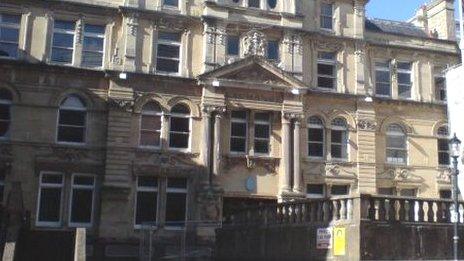Cardiff Coal Exchange: Council approves £40m hotel plan
- Published
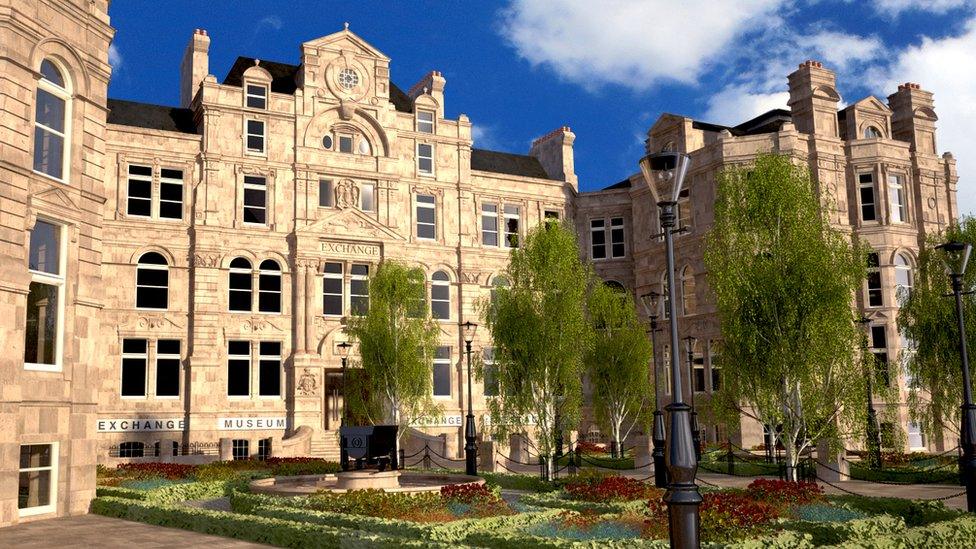
An artist's impression of how the revamped Coal Exchange could look
A key step in the £40m redevelopment plan for Cardiff's Coal Exchange has been given the go-ahead.
Signature Living wants to turn the Grade II*-listed building into a hotel.
The plan has not been without its detractors - MP Stephen Doughty called for an inquiry and the Victorian Society said it was "unacceptable".
Cardiff council's planning committee voted to approve the application to change the use of the building to a hotel, subject to conditions.
The decision does not extend to any building work, which will be discussed at a later date.
Developers said the 200-suite hotel would create about 100 jobs during construction and a further 60 once it opened.
Signature Living founder Lawrence Kenwright welcomed the decision, adding the firm would be on site "within the next couple of weeks".
"After years of dereliction and decay, the Coal Exchange will once again become an outstanding landmark building for the people of Cardiff and a truly first-class hotel, conferencing and major events venue," he said.
Other plans for the development include function rooms, a restaurant and bar and a spa.
It is expected to take about 18 months to compete the work and the venue would also host weddings and conferences.

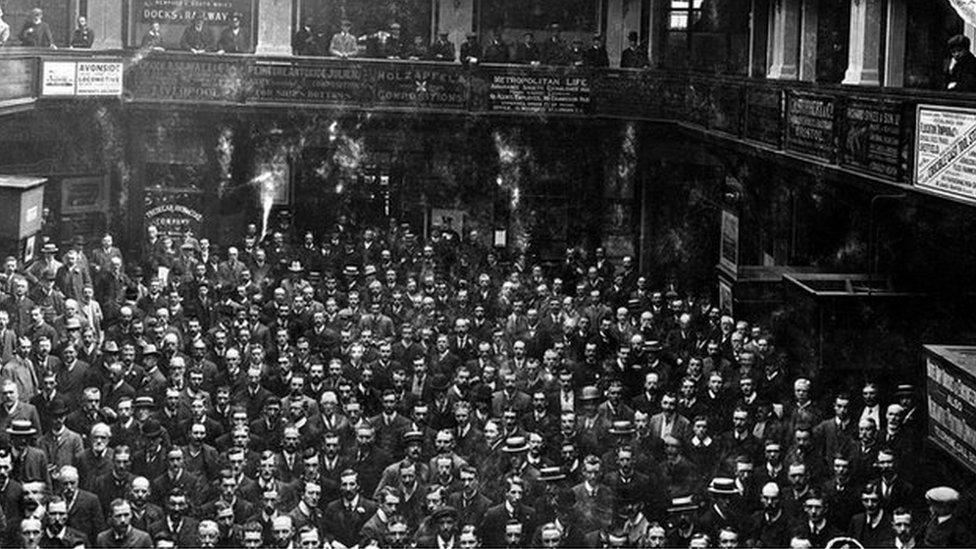
The trading floor of the Coal Exchange at its peak
A brief history of the Coal Exchange
Dates back to 1883 when Cardiff was at the centre of the coal trade
Coal merchants, ship owners and their agents met daily on the trading floor
At one time the price of the world's coal was determined there and in 1904 the world's first recorded £1m deal was struck there
Closed in 1958 after the decline of the coal industry
Earmarked as a future home for the Welsh Assembly but that plan fell through after devolution was rejected in a 1979 referendum
In more recent years it has been used for concerts, dinners and other events, but closed in 2013
There were once plans for the exchange hall to be restored and a 1,300-seat banqueting hall, public square, office space and innovation centre developed
- Published4 July 2016
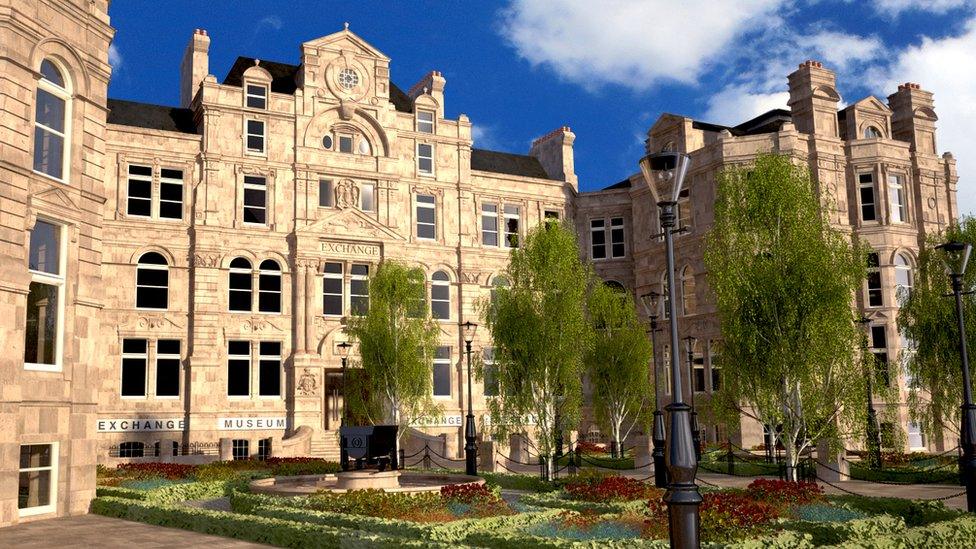
- Published20 April 2016

- Published8 April 2016

- Published23 September 2014
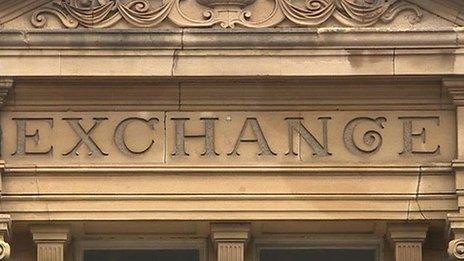
- Published3 September 2014
